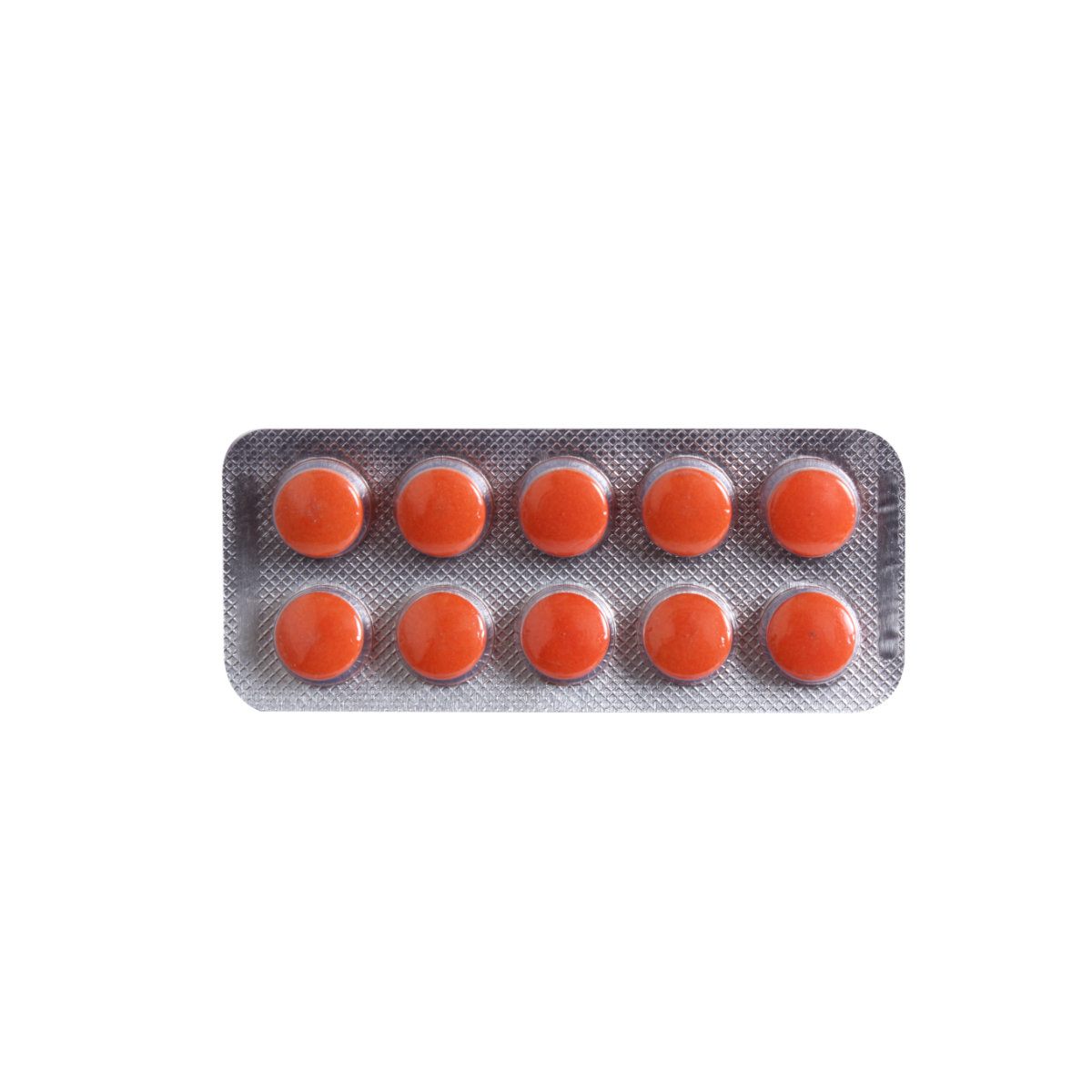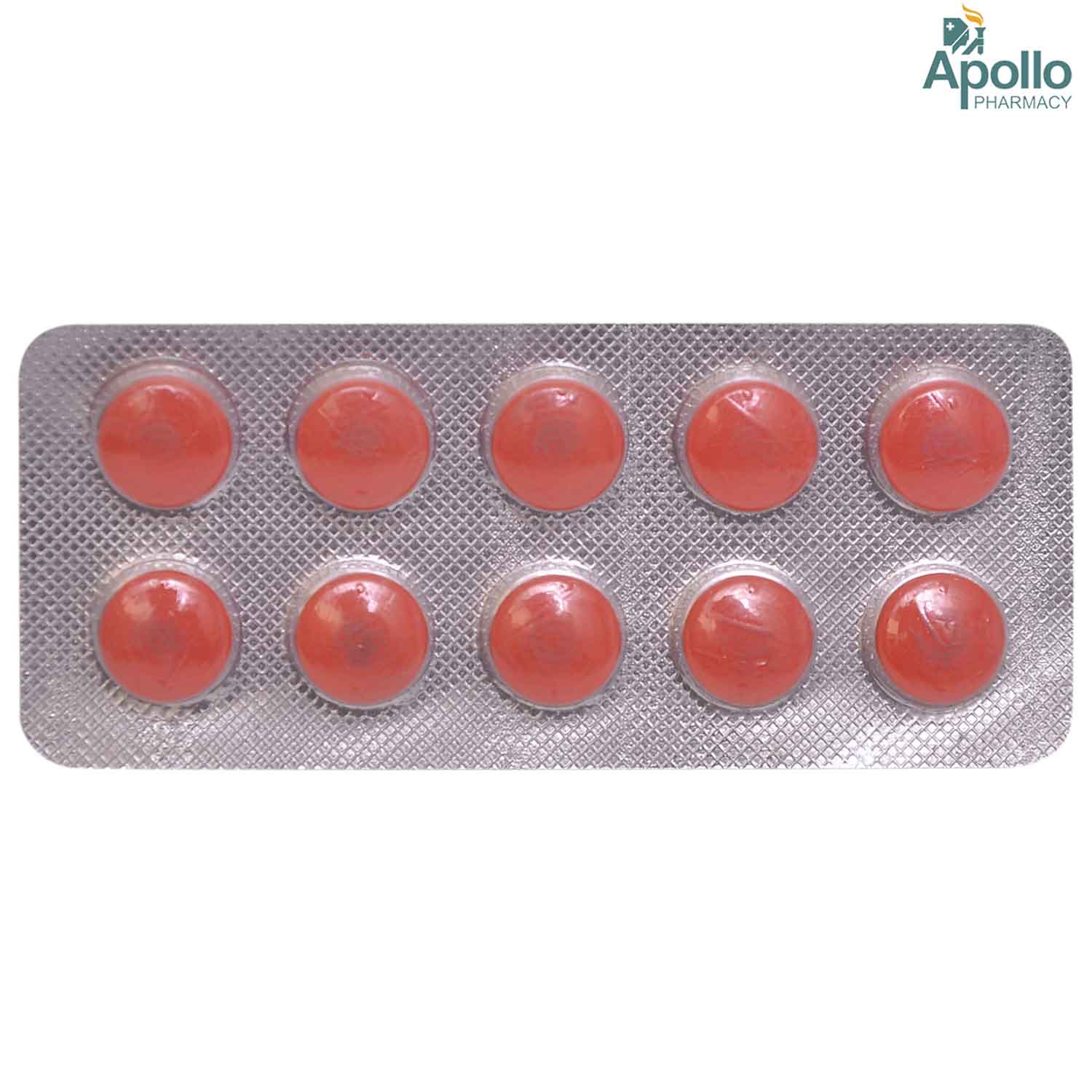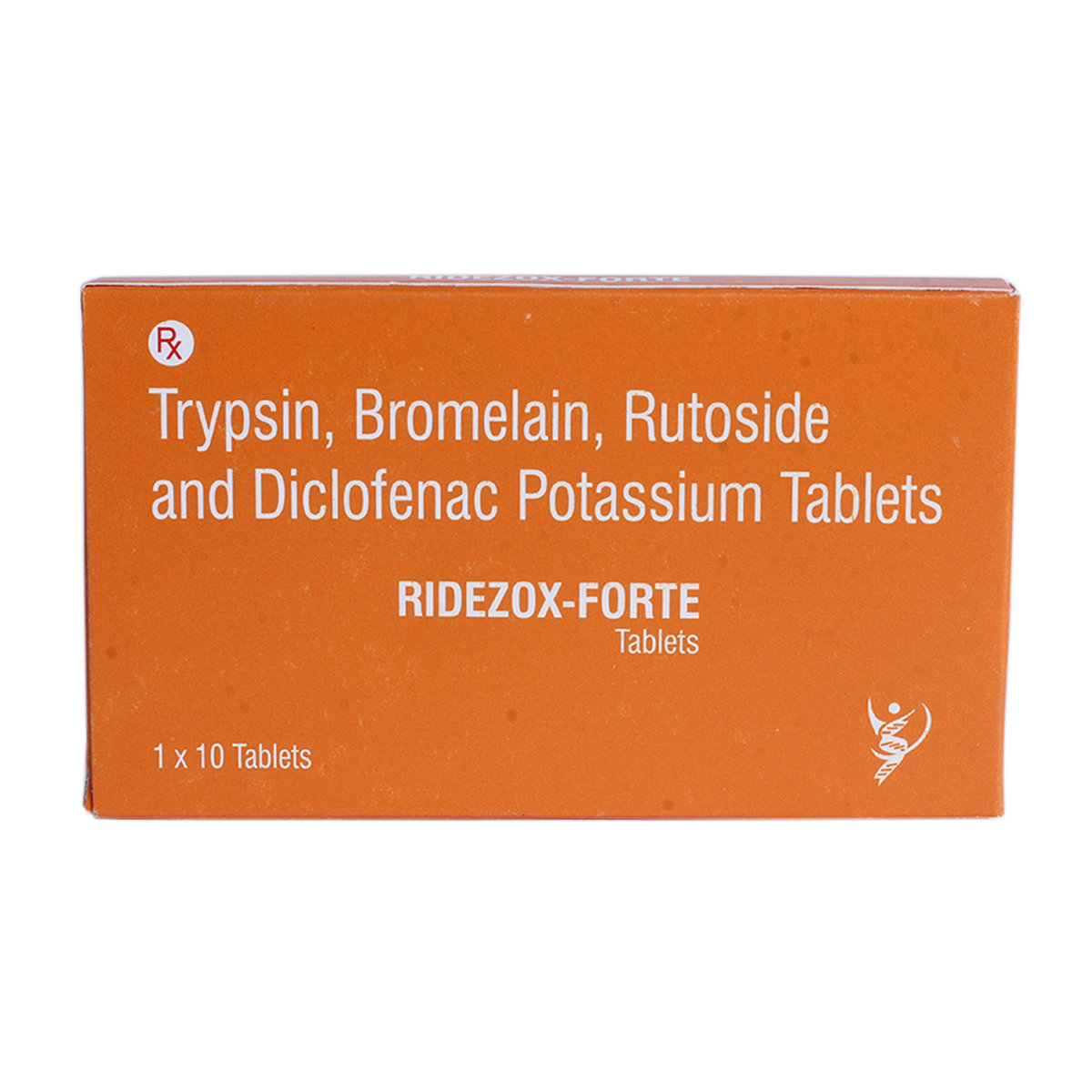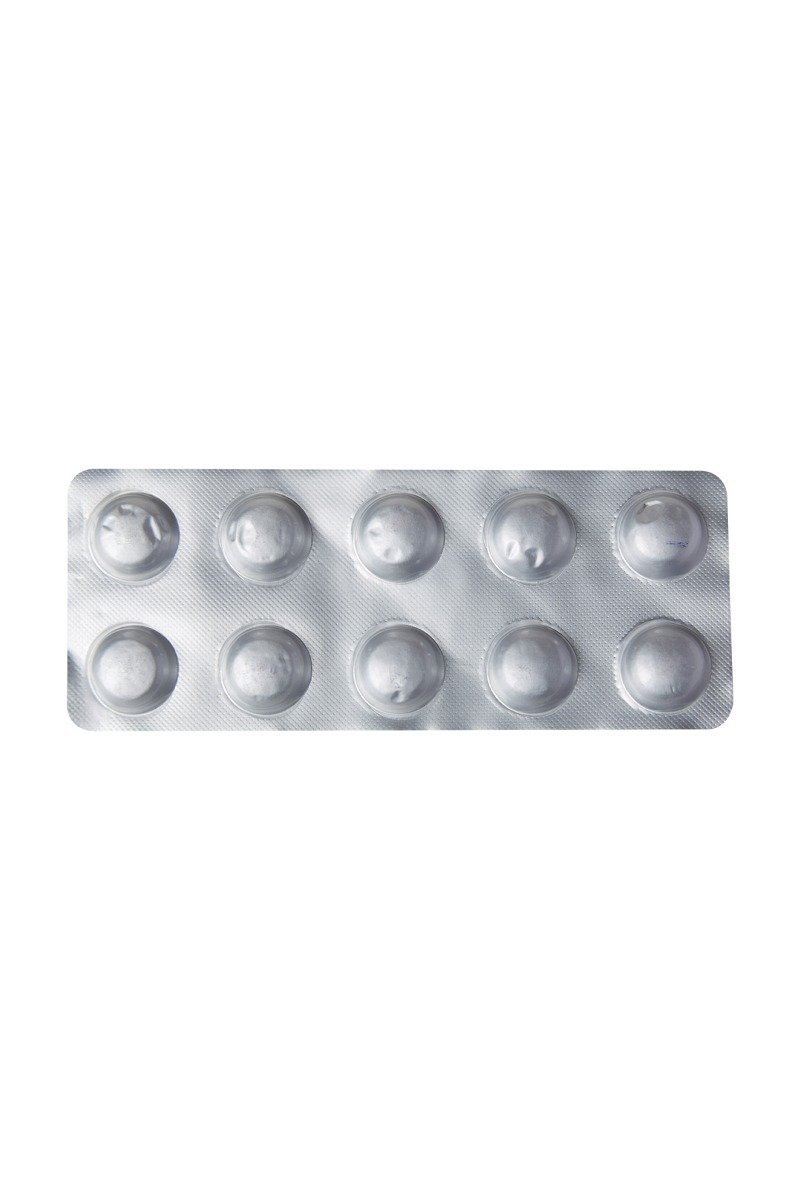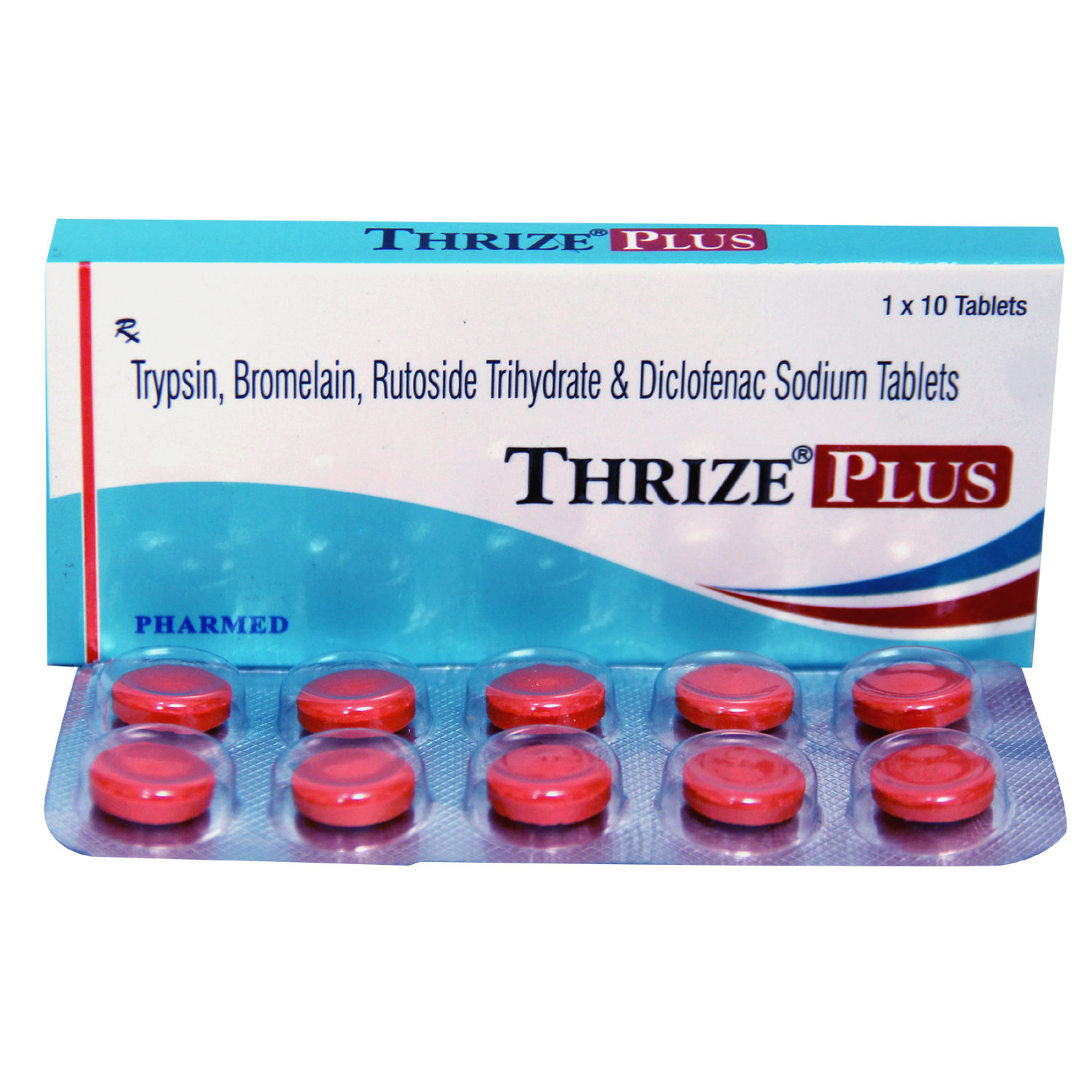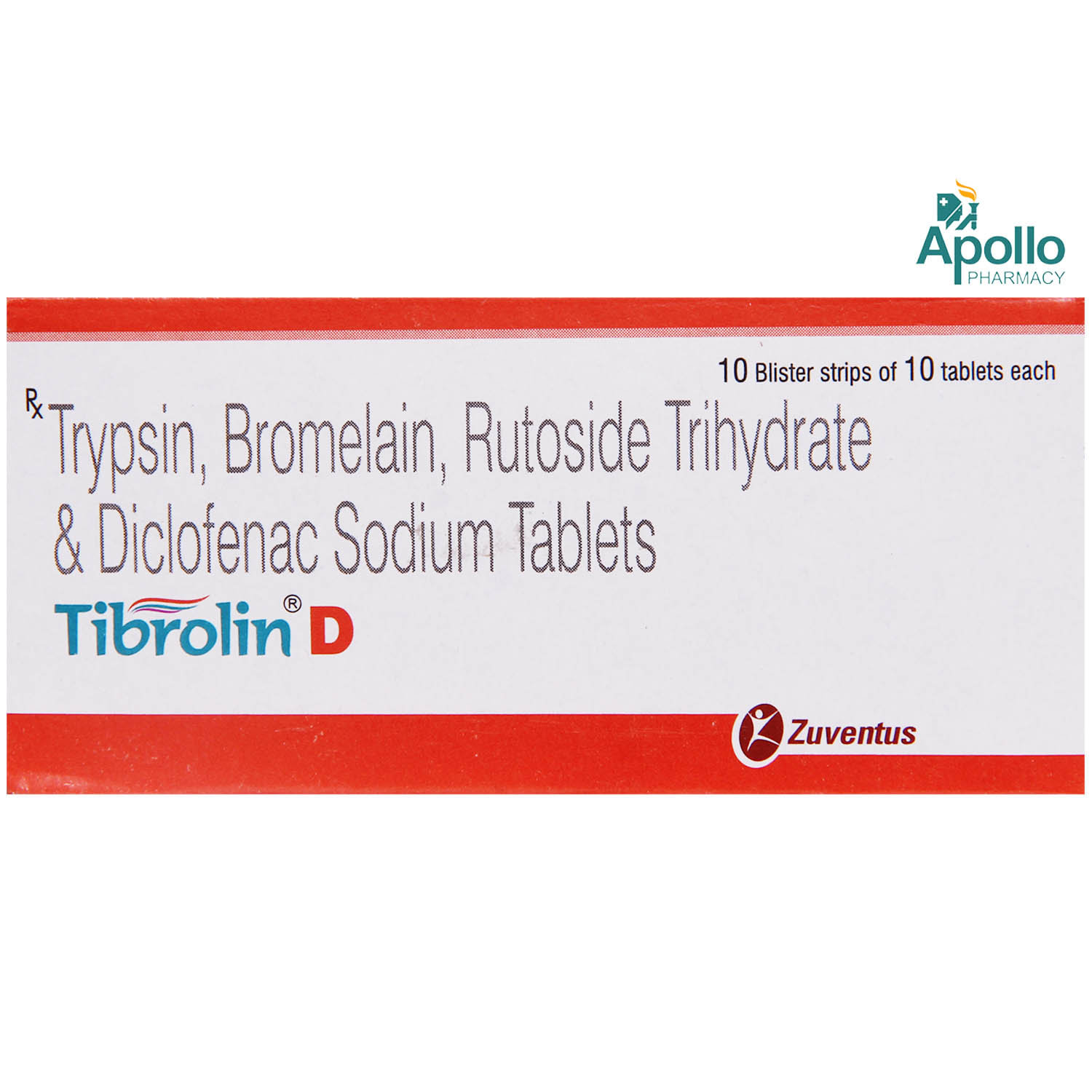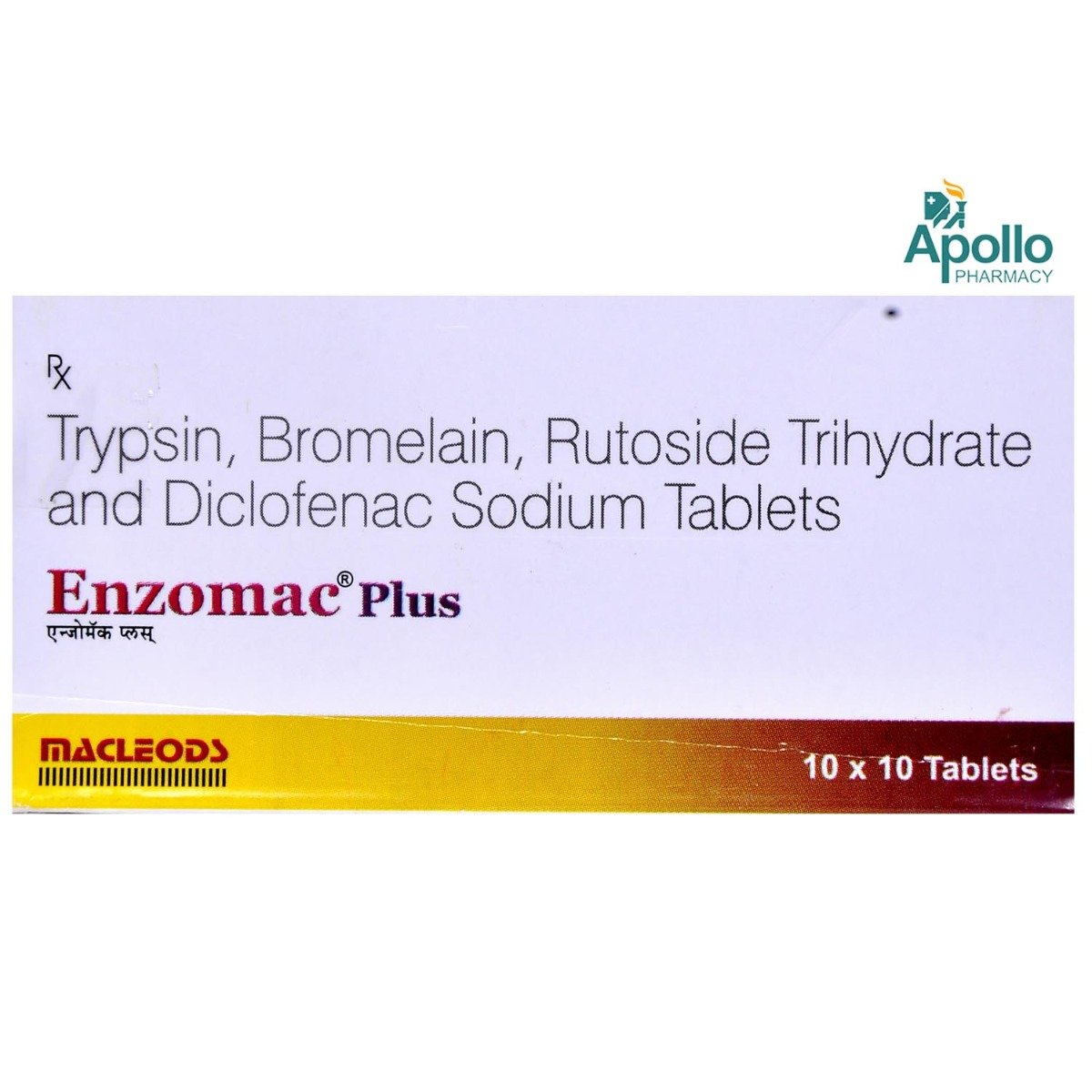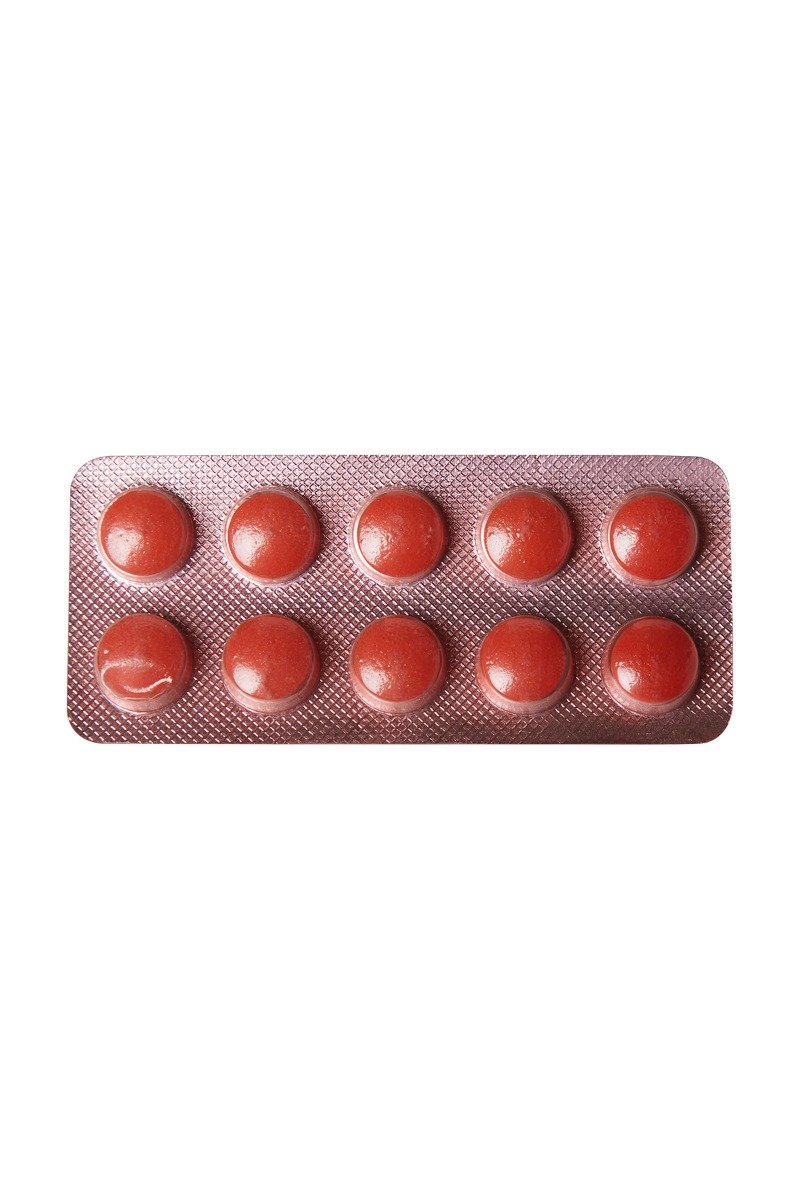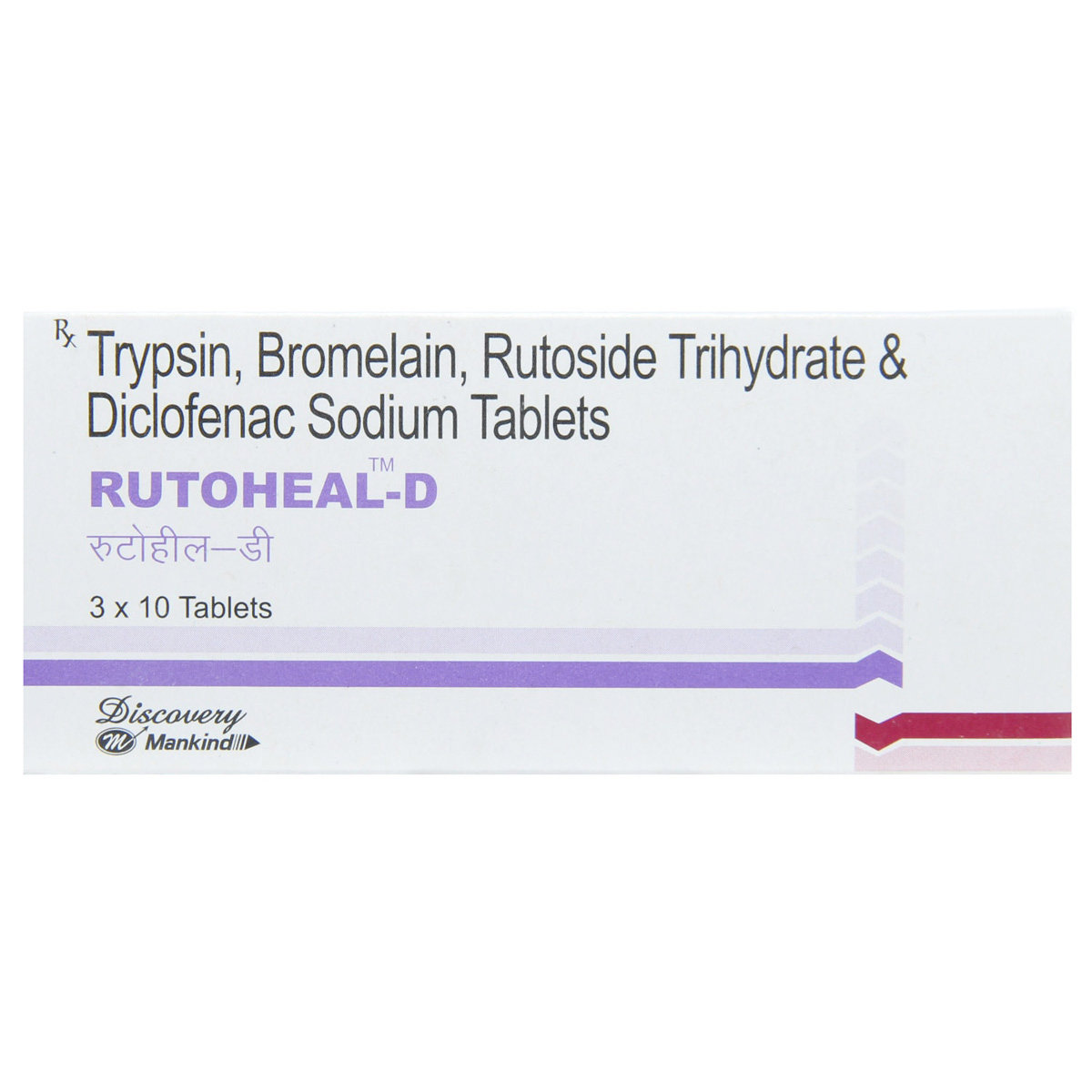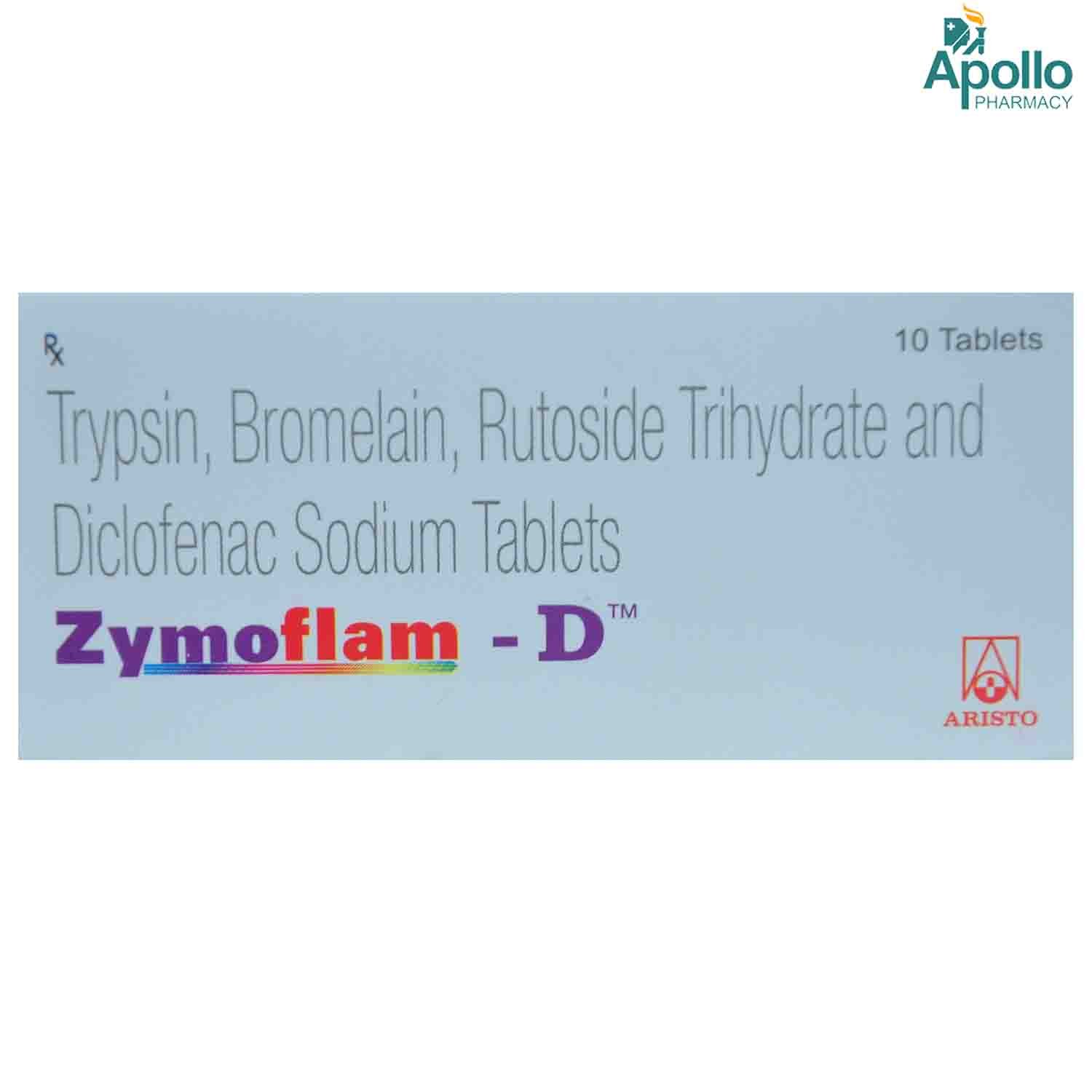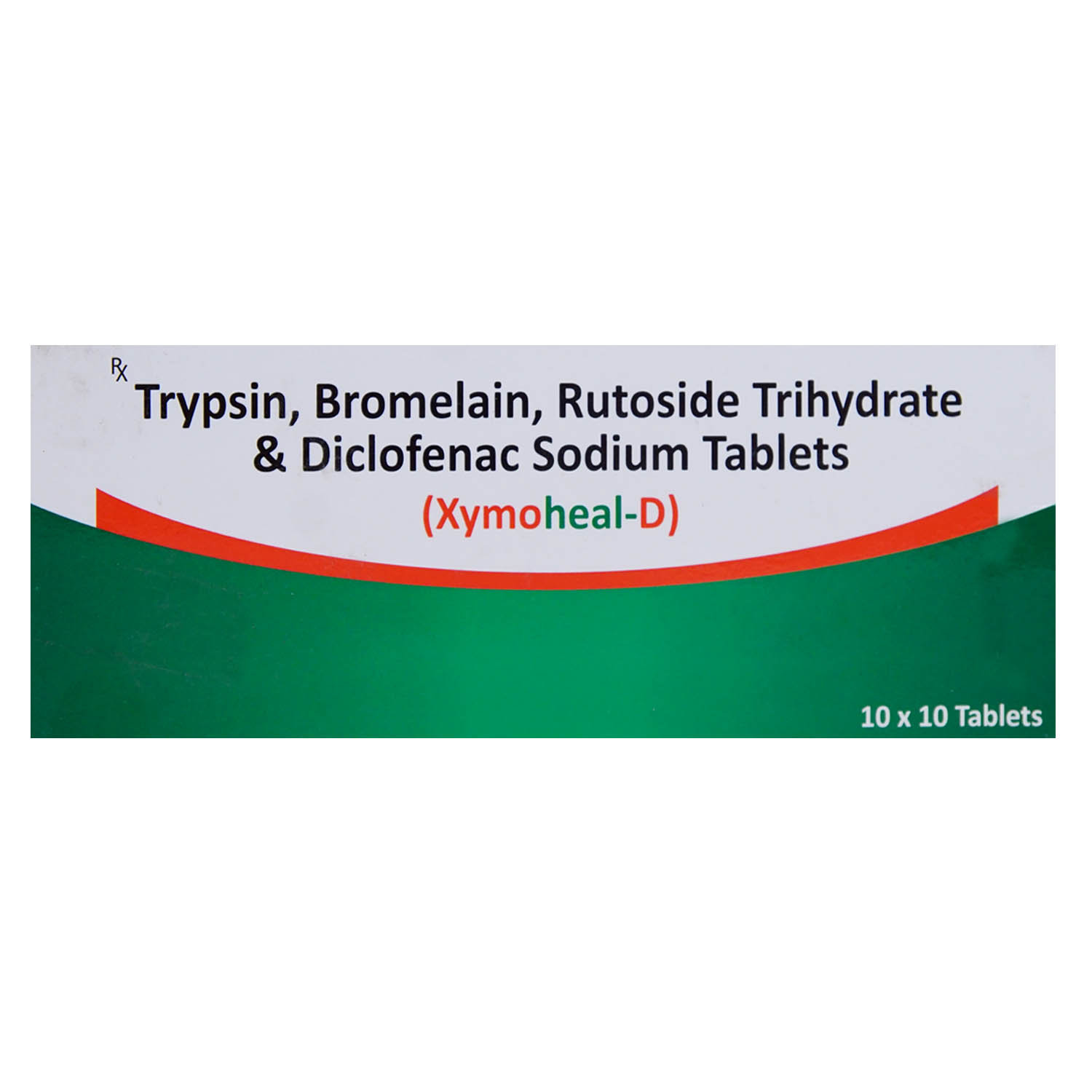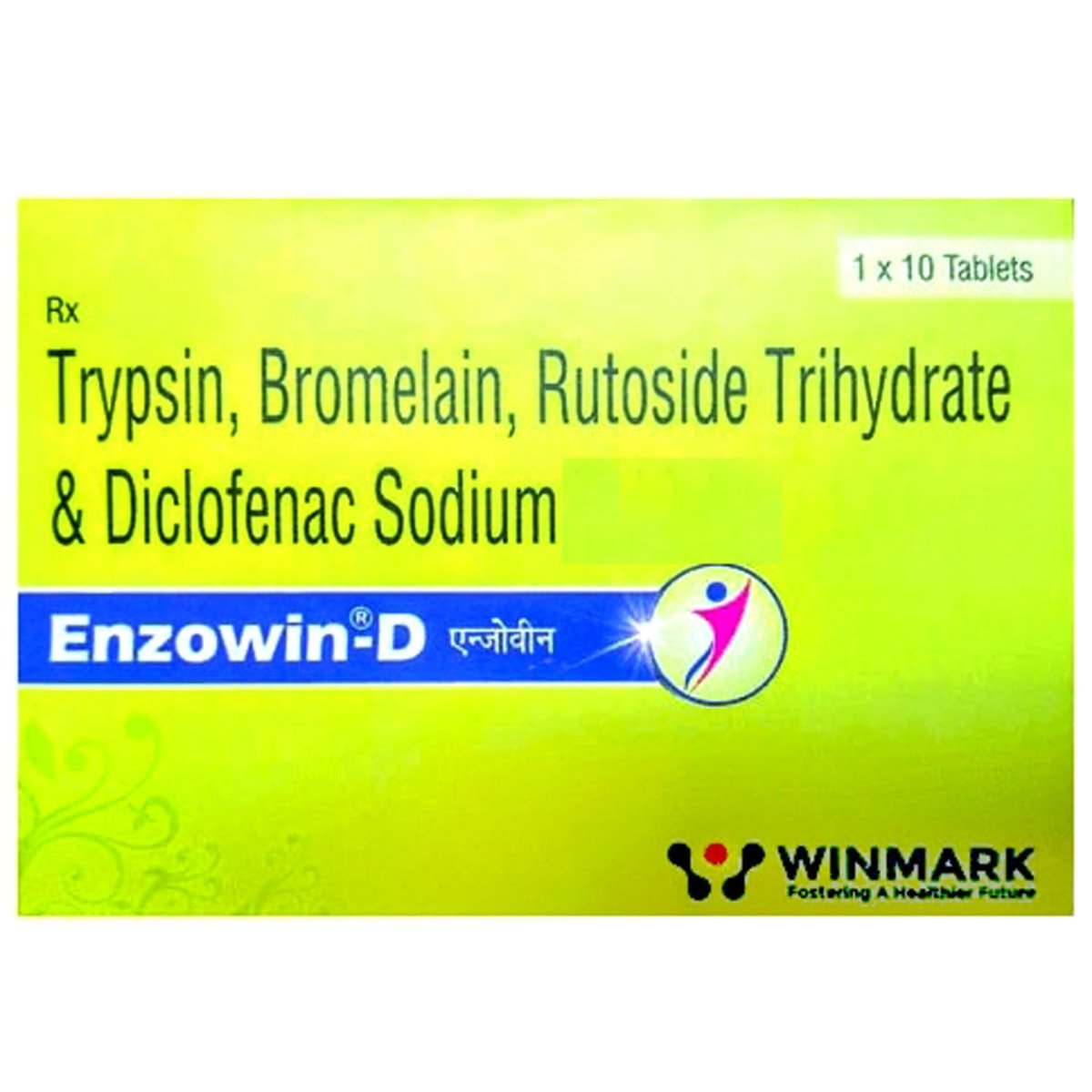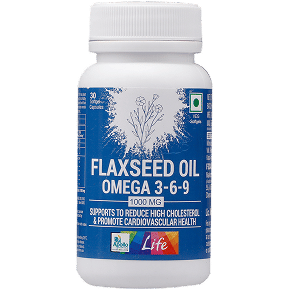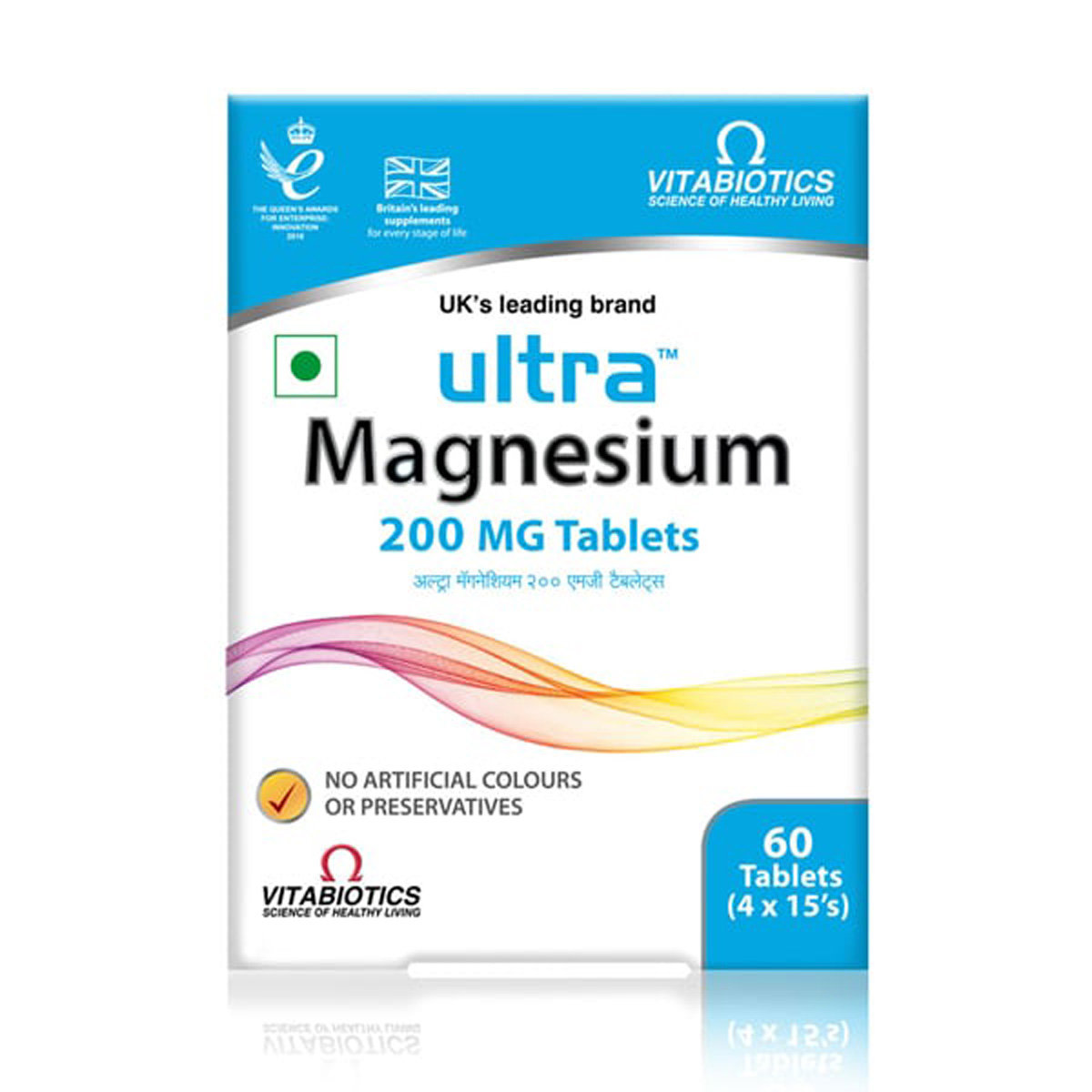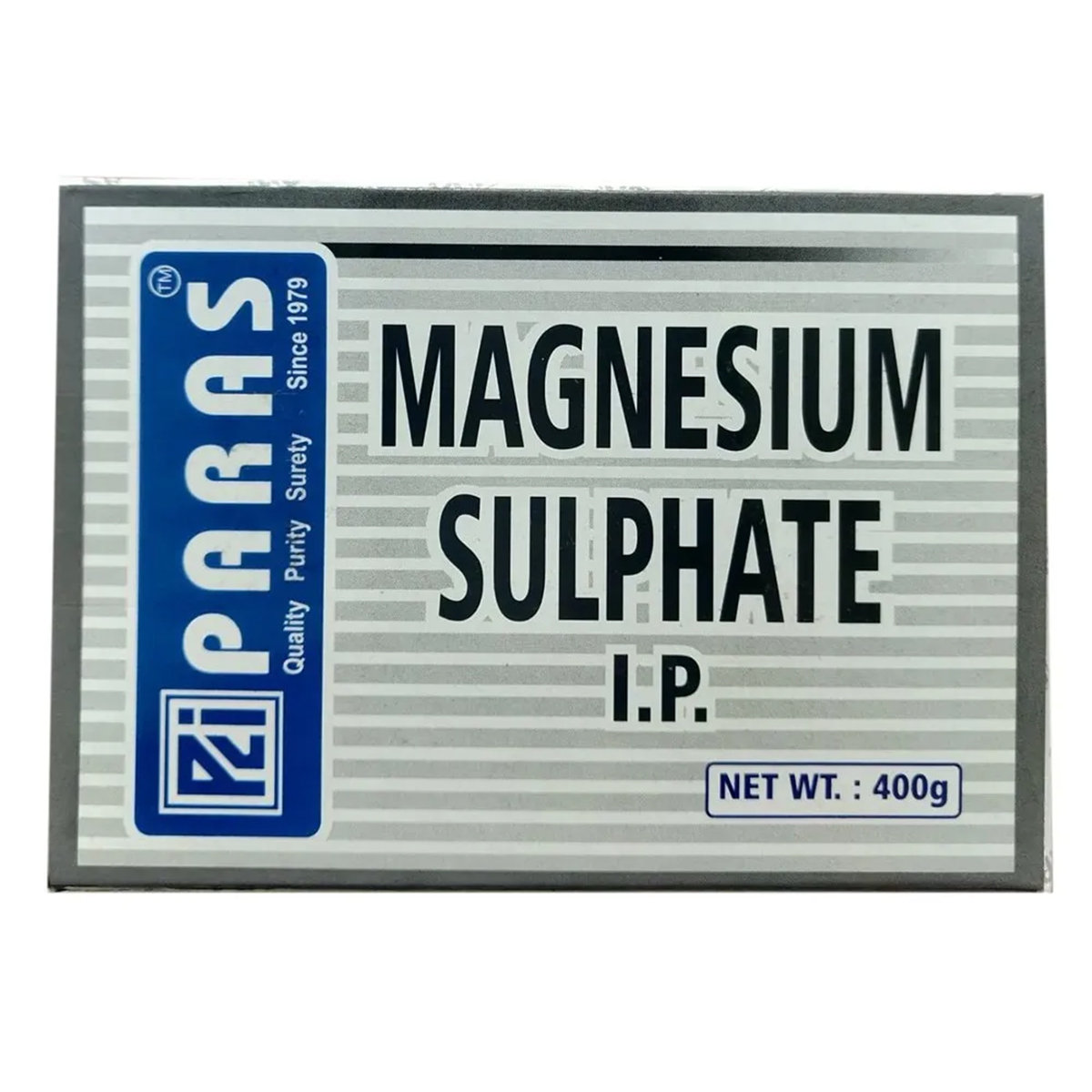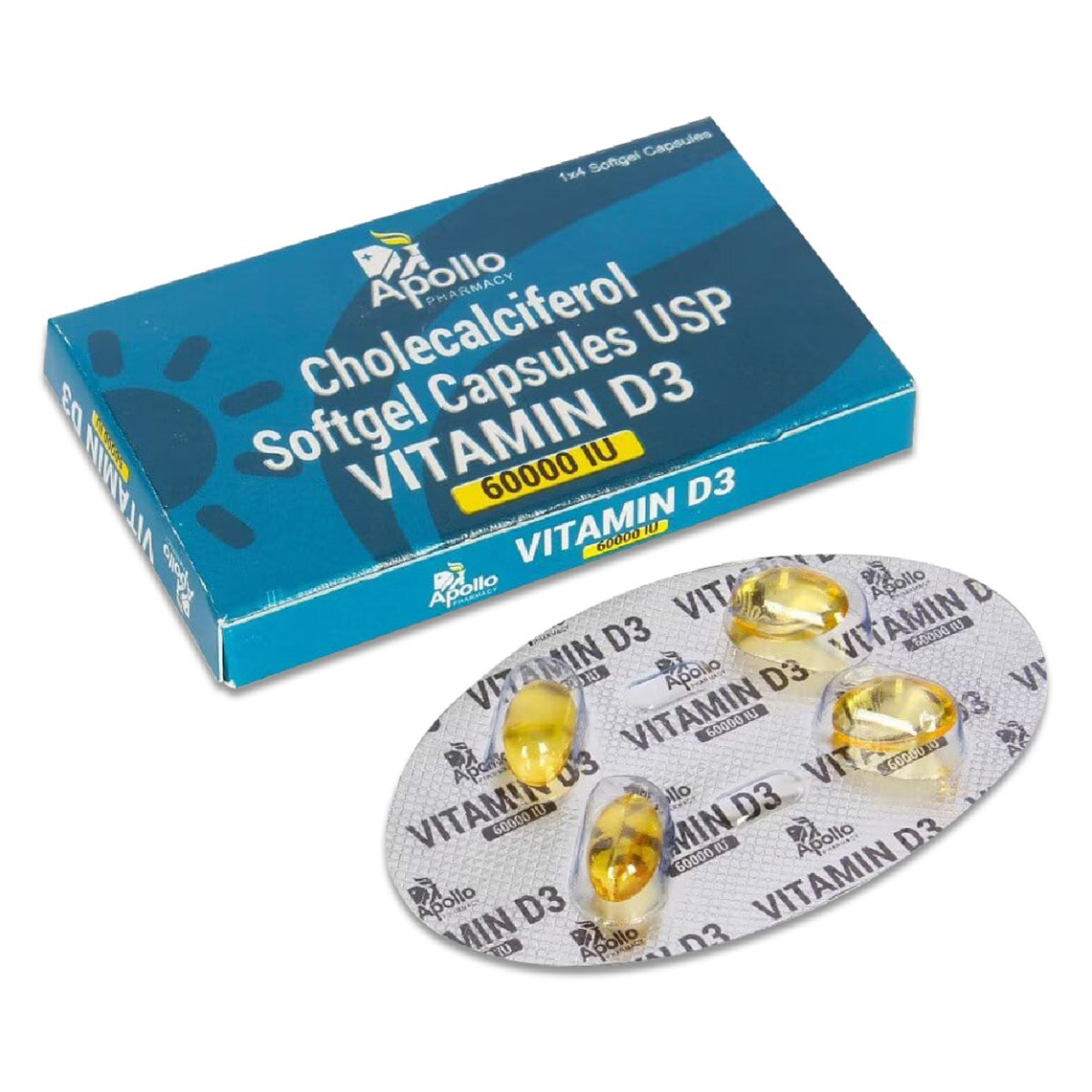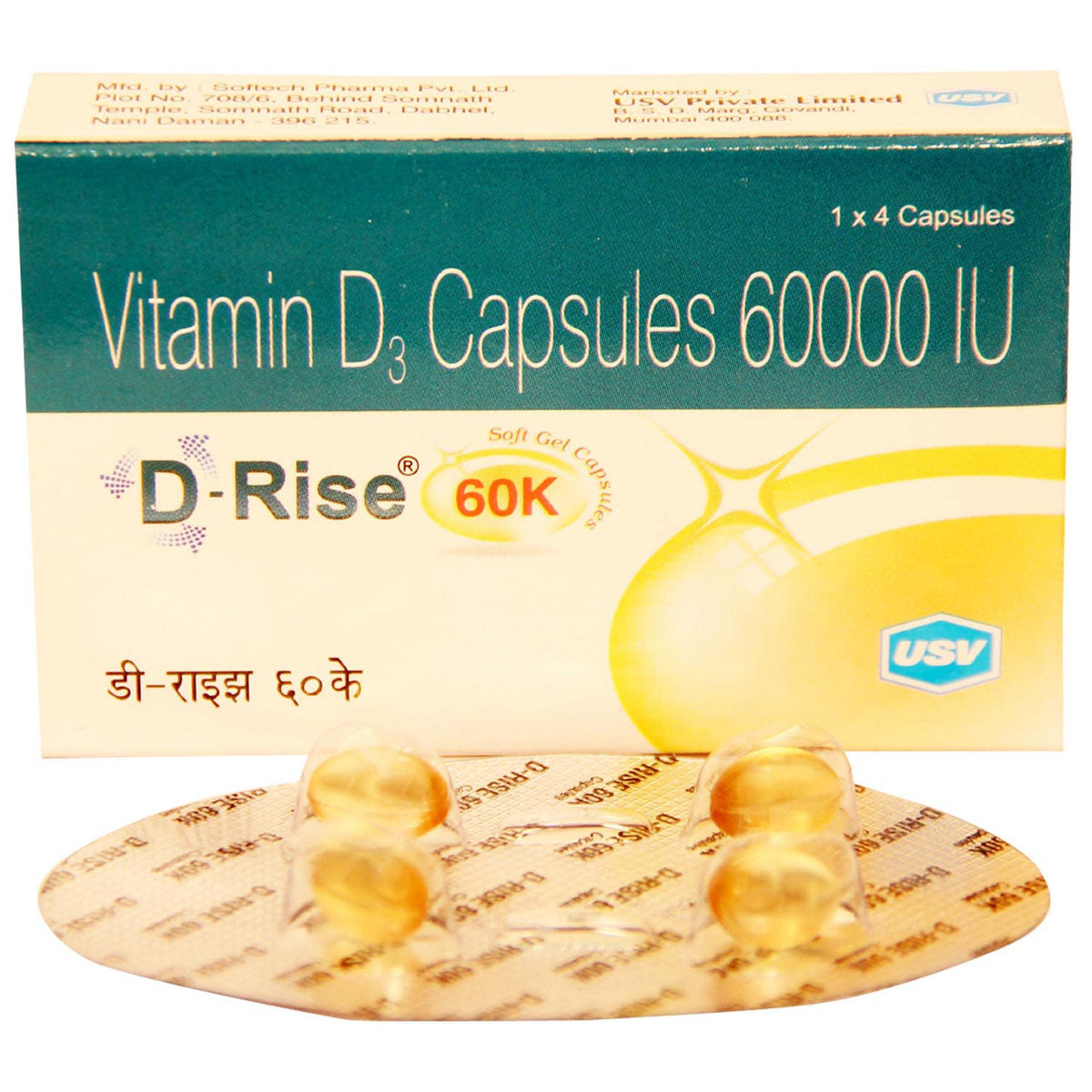Enzoheal D Tablet
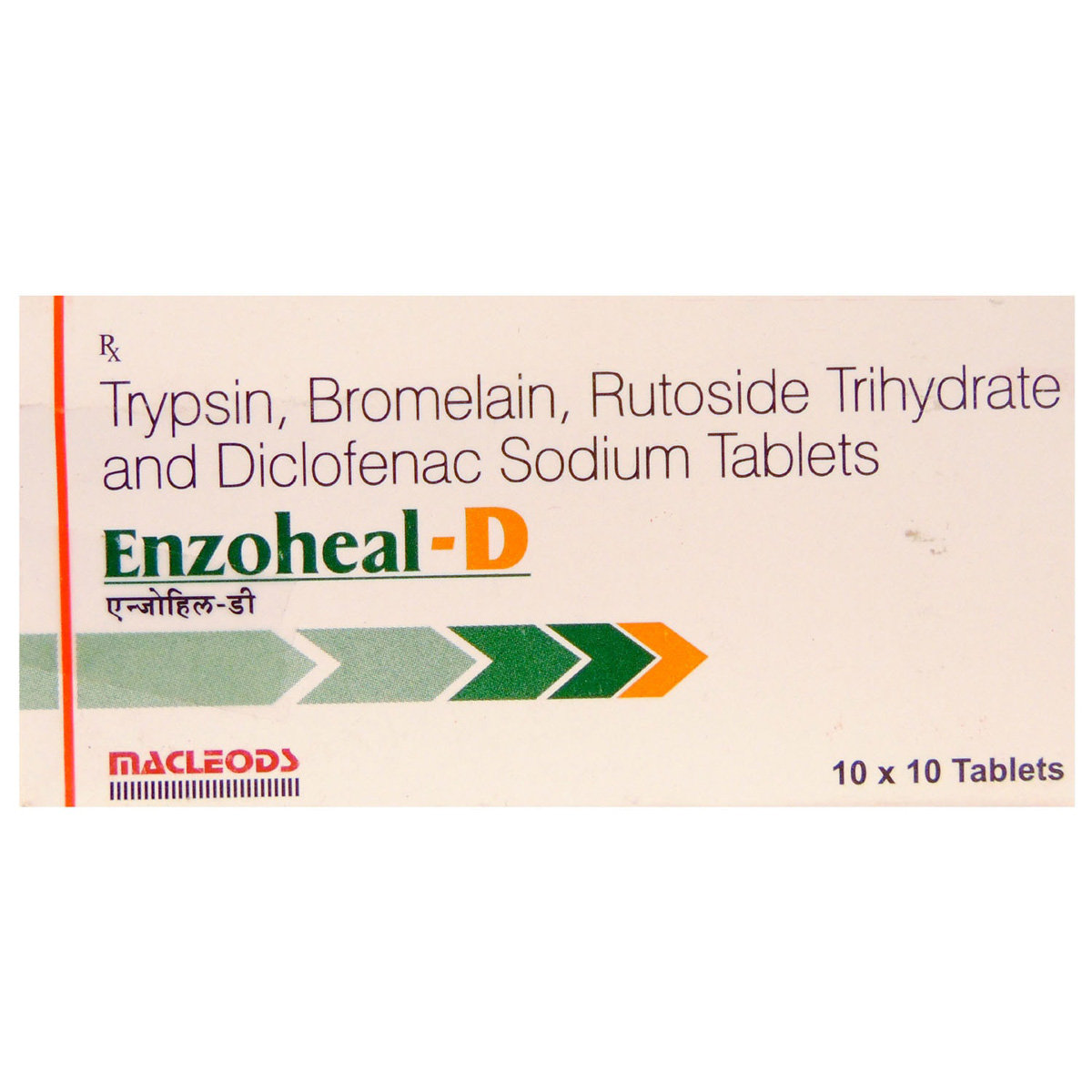
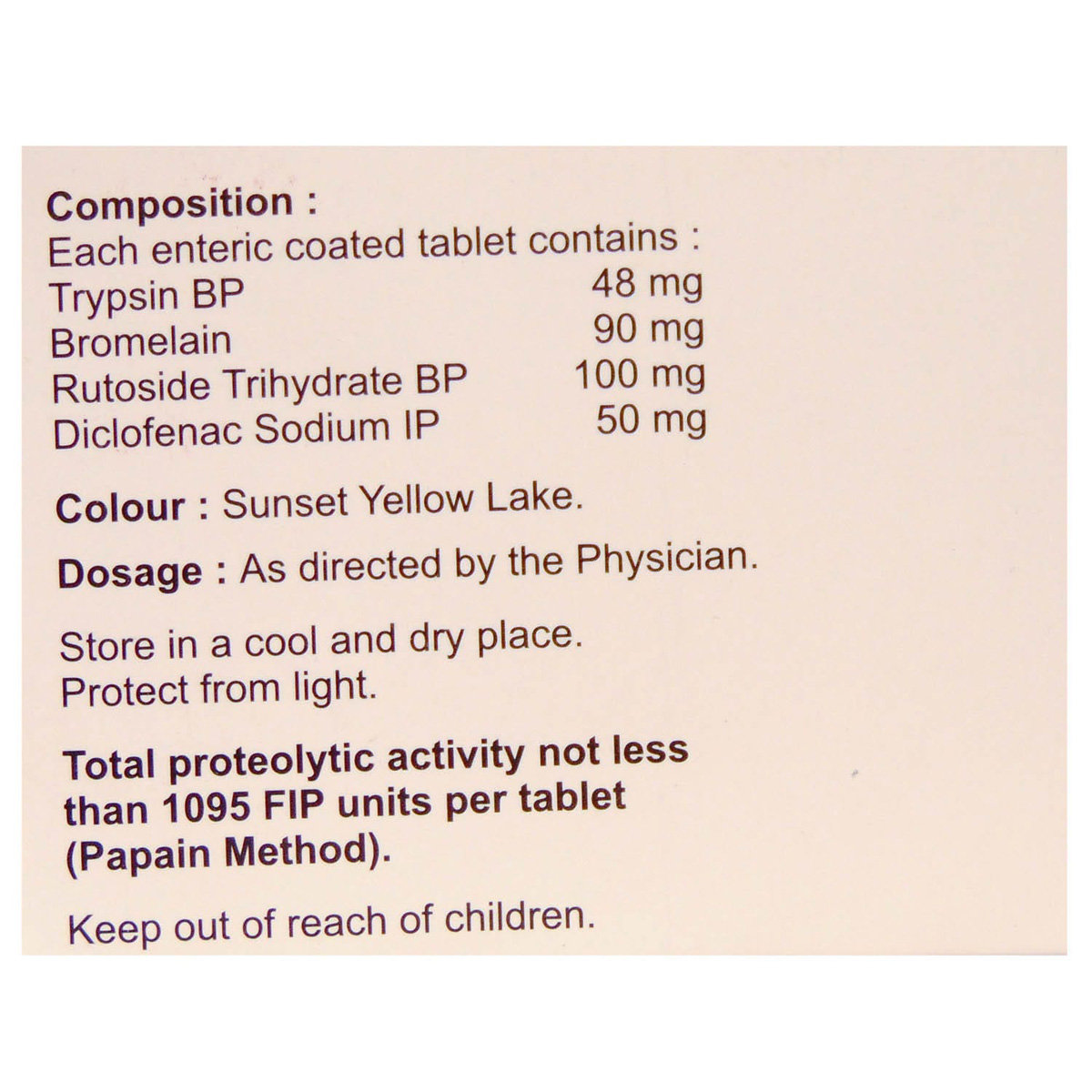
MRP ₹290
(Inclusive of all Taxes)
₹43.5 Cashback (15%)
know your delivery time
Provide Delivery Location
Manufacturer/Marketer :
Consume Type :
Expires on or after :
Return Policy :

Secure Payment

Trusted by 8 Crore Indians

Genuine Products
Therapeutic Class
Country of origin
Manufacturer/Marketer address
Author Details
We provide you with authentic, trustworthy and relevant information
Disclaimer
Alcohol
Safe if prescribed
It is not known if alcohol interacts with Enzoheal D Tablet . Please consult your doctor if you have any concerns.
Pregnancy
Consult your doctor
If you are pregnant, please consult your doctor. Your doctor will prescribe only if the benefits outweigh the risks.
Breast Feeding
Consult your doctor
Consult your doctor if you are breastfeeding. Your doctor will prescribe only if the benefits outweigh the risks.
Driving
Safe if prescribed
Enzoheal D Tablet may cause blurred vision and dizziness. So, do not drive or operate heavy machinery unless you are alert.
Liver
Consult your doctor
Enzoheal D Tablet should be used with caution in patients with liver diseases. The dose may have to be adjusted by your doctor.
Kidney
Consult your doctor
Enzoheal D Tablet should be used with caution in patients with kidney diseases. The dose may have to be adjusted by your doctor.
Children
Safe if prescribed
Enzoheal D Tablet is not recommended for children below 12 years of age.
Product Substitutes
About Enzoheal D Tablet
Enzoheal D Tablet is used to treat pain and inflammation associated with osteoarthritis (joint pain, especially in the knees, hip, hands, neck, and lower back) and rheumatoid arthritis (joint pain, especially in the hands and feet). It may also provide relief from toothache, ear pain, throat pain, muscle ache, and backache.
Enzoheal D Tablet contains Trypsin, Bromelain, Rutoside, and Diclofenac. Trypsin and Bromelain reduce pain and inflammation by increasing the blood supply to the affected area and promoting healing. Rutoside prevents swelling and inflammation by neutralizing the chemicals that cause cell damage. Diclofenac blocks the release of chemical substances that cause pain and inflammation.
Take Enzoheal D Tablet exactly as prescribed by your doctor. Enzoheal D Tablet may cause side-effects such as nausea, vomiting, stomach pain, indigestion, heartburn, stomach upset, diarrhoea, and headache. These side-effects are usually mild and temporary. However, if any of these side-effects persist or worsen, consult a doctor immediately.
Consult your doctor if you are pregnant or breastfeeding. Enzoheal D Tablet is not recommended for children below 12 years of age. Enzoheal D Tablet may cause dizziness, so do not drive or operate heavy machinery unless you are alert. Keep your doctor informed about your health conditions and medications to rule out any interactions/side effects.
Uses of Enzoheal D Tablet
Medicinal Benefits Mweb
Key Benefits
Enzoheal D Tablet is a combination of four medicines: Trypsin, Bromelain, Rutoside, and Diclofenac. Trypsin and Bromelain are enzymes with antiseptic and anti-inflammatory properties. They reduce pain and inflammation by increasing the blood supply to the affected area and promoting healing. Rutoside is an antioxidant and anti-inflammatory agent. It prevents further swelling and inflammation by neutralizing the chemicals (free radicals) that cause cell damage. Diclofenac is a non-steroidal anti-inflammatory agent (NSAID) that prevents the production of chemical substances (prostaglandins) that cause pain and inflammation.
Directions for Use
Side Effects of Enzoheal D Tablet
- Nausea
- Vomiting
- Stomach pain
- Indigestion
- Heartburn
- Stomach upset
- Diarrhoea
- Headache
Drug Warnings
Do not take Enzoheal D Tablet if you are allergic to any of its contents. Inform your doctor if you have/had high blood pressure, heart problems, high cholesterol, diabetes, asthma, angina, bowel problems, blood clotting disorder, a habit of smoking, or liver and kidney problems. Consult your doctor if you are pregnant or breastfeeding. Stop taking Enzoheal D Tablet and consult your doctor immediately if you have stomach pain or any signs of bleeding in the intestine or stomach, such as blood in stools.
Drug-Drug Interactions
Drug-Drug Interactions
Login/Sign Up
Co-administration of Enzoheal D Tablet with Meloxicam can increase the risk or severity of gastrointestinal side effects.
How to manage the interaction:
Taking Meloxicam with Enzoheal D Tablet is not recommended as it can possibly result in an interaction, it can be taken if your doctor has advised it. However, consult your doctor immediately if you experience symptoms such as dizziness, lightheadedness, red or black, tarry stools, coughing up or vomiting fresh or dried blood that looks like coffee grounds, severe headache, and weakness. Do not stop any medication without doctor's advise.
Taking Enzoheal D Tablet with Enoxaparin can increase the risk of bleeding complications.
How to manage the interaction:
There may be a possible interaction between Enzoheal D Tablet and Enoxaparin, but they can be taken together if your doctor has prescribed them. However, consult your doctor immediately if you experience any unusual bleeding or bruising, swelling, vomiting, blood in your urine or stools, headache, dizziness, or weakness. Do not discontinue any medications without consulting a doctor.
Coadministration of Enzoheal D Tablet with Ketoconazole may increase the risk of liver problems.
How to manage the interaction:
There may be a possible interaction between Enzoheal D Tablet and Ketoconazole, but they can be taken together if a doctor has prescribed them. However, consult a doctor immediately if you have fever, chills, joint pain or swelling, unusual bleeding or bruising, skin rash, itching, loss of appetite, fatigue, nausea, vomiting, abdominal pain, dark colored urine, light colored stools, and/or yellowing of the skin or eyes. Do not discontinue any medications without consulting a doctor.
Taking Enzoheal D Tablet with human immunoglobulin may increase the risk of kidney problems.
How to manage the interaction:
Although there is an interaction between Human immunoglobulin and Enzoheal D Tablet, you can take these medicines together if prescribed by a doctor. However, consult the doctor immediately if you experience symptoms such as nausea, vomiting, loss of appetite, increased or decreased urination, sudden weight gain or weight loss, fluid retention, swelling, shortness of breath, muscle cramps, tiredness, weakness, dizziness, confusion, and irregular heart rhythm. Do not discontinue any medications without consulting a doctor.
Taking Enzoheal D Tablet with Ibrutinib can increase the risk of bleeding tendencies.
How to manage the interaction:
There may be a possible interaction between Enzoheal D Tablet and Ibrutinib, but they can be taken together if a doctor has prescribed them. However, consult a doctor immediately if you experience any unusual bleeding, dizziness, lightheadedness, red or black, tarry stools, coughing up or vomiting fresh or dried blood that looks like coffee grounds, or severe headaches. Do not discontinue any medications without consulting a doctor.
Co-administration of Enzoheal D Tablet with Celecoxib may increase the risk of stomach bleeding and ulcers.
How to manage the interaction:
Although there is a interaction between Enzoheal D Tablet and Celecoxib, but it can be taken if your doctor has advised it. Consult a doctor if you experience symptoms like blood in your urine or stool (or a black stool), severe bruising, prolonged nosebleeds, feeling dizzy or lightheaded, weakness or severe headache, vomiting blood or coughing up blood, heavy menstrual bleeding (in women), difficulty breathing, or chest pain. Do not discontinue any medication without consulting a doctor.
Co administration of Enzoheal D Tablet with Leflunomide may result in liver problems.
How to manage the interaction:
Co-administration of Enzoheal D Tablet and Leflunomide can lead to an interaction; it can be taken if advised by your doctor. However, if you have a fever, chills, joint pain or swelling, unusual bleeding or bruising, skin rash, itching, loss of appetite, fatigue, nausea, vomiting, abdominal pain, dark-colored urine, light-colored stools, or yellowing of the skin or eyes. Do not stop using any medication without consulting your doctor.
Concomitant administration of Enzoheal D Tablet and furosemide may decrease the therapeutic efficacy of furosemide and adversely affect renal function.
How to manage the interaction:
There may be a possible interaction between Enzoheal D Tablet and furosemide, but they can be taken together if your doctor has prescribed them. However, consult your doctor immediately if you experience symptoms like nausea, dizziness, irregular heartbeats, altered blood pressure, tingling. Do not stop using any medications without first talking to your doctor.
Co-administration of Enzoheal D Tablet and tenofovir alafenamide may cause kidney problems.
How to manage the interaction:
There may be a possible interaction between Enzoheal D Tablet and Tenofovir alafenamide but they can be taken together if your doctor has prescribed them. However, consult your doctor immediately if you experience symptoms such as such as nausea, vomiting, loss of appetite, increased or decreased urination, sudden weight gain or weight loss, fluid retention, swelling, shortness of breath, bone pain, muscle cramps, tiredness, weakness, dizziness, confusion, and irregular heart rhythm. Do not stop using any medications without talking to your doctor.
Taking Dasatinib together with Enzoheal D Tablet may increase the risk of bleeding.
How to manage the interaction:
There may be a possible interaction between Enzoheal D Tablet and Dasatinib but they can be taken together if a doctor has prescribed them. However, consult a doctor immediately if you experience dizziness, red or black, tarry stools, or severe headaches. Do not discontinue any medications without consulting a doctor.
Drug-Food Interactions
Drug-Food Interactions
Login/Sign Up
Drug-Diseases Interactions
Drug-Diseases Interactions
Login/Sign Up
Drug-Drug Interactions Checker List
- ASPIRIN
- WARFARIN
- DULOXETINE
- LITHIUM
- CHLORAMPHENICOL
Habit Forming
Diet & Lifestyle Advise
- Do not go for heavy exercise as it may increase your joint pain in arthritis. Instead, you can do stretching, low impact aerobic exercises like walking on the treadmill, bike riding, and swimming. You can also strengthen your muscles by lifting light weights.
- Try to include fish like salmon, trout, tuna, and sardines. These fishes are enriched with omega-3 fatty acids that minimize levels of chemicals called cytokines, which ramp up inflammation.
- Your sitting posture is important, especially when you have pain and inflammation. Try to sit as little as possible and only for a short duration of time. Long-term immobility is harmful in conditions like arthritis. Use back support like a rolled-up towel at the back of your spine curve to minimize pain. Keep your knees and hips at a right angle. Besides this, you can also use a footrest if required.
All Substitutes & Brand Comparisons
RX
Shanzen Tablet 10's
Auftritt Healthcare Pvt Ltd
₹205
(₹18.45 per unit)
29% CHEAPERRX
Vivitrip-D Tablet 10's
Assentus Biogenics Pvt Ltd
₹215.5
(₹19.4 per unit)
25% CHEAPERRX
Seradic Plus Tablet 10's
Obsurge Biotech Ltd
₹215.5
(₹19.4 per unit)
25% CHEAPER
Buy best C.n.s Drugs products by
Intas Pharmaceuticals Ltd
Sun Pharmaceutical Industries Ltd
Torrent Pharmaceuticals Ltd
Alkem Laboratories Ltd
Abbott India Ltd
Cipla Ltd
Alteus Biogenics Pvt Ltd
Micro Labs Ltd
Lupin Ltd
Ipca Laboratories Ltd
D D Pharmaceuticals Pvt Ltd
Icon Life Sciences
Mankind Pharma Pvt Ltd
Tripada Healthcare Pvt Ltd
Arinna Lifesciences Ltd
Linux Laboratories Pvt Ltd
East West Pharma India Pvt Ltd
La Renon Healthcare Pvt Ltd
Talent India Pvt Ltd
Tas Med India Pvt Ltd
Zydus Healthcare Ltd
Cnx Health Care Pvt Ltd
Eris Life Sciences Ltd
Leeford Healthcare Ltd
Emcure Pharmaceuticals Ltd
Macleods Pharmaceuticals Ltd
Sigmund Promedica
Aristo Pharmaceuticals Pvt Ltd
Dr Reddy's Laboratories Ltd
Troikaa Pharmaceuticals Ltd
Consern Pharma Ltd
Zydus Cadila
Shine Pharmaceuticals Ltd
Wockhardt Ltd
Ardent Life Sciences Pvt Ltd
Crescent Formulations Pvt Ltd
Theo Pharma Pvt Ltd
Reliance Formulation Pvt Ltd
Ikon Pharmaceuticals Pvt Ltd
Propel Healthcare
Neon Laboratories Ltd
Jagsam Pharma
Msn Laboratories Pvt Ltd
Morepen Laboratories Ltd
Pulse Pharmaceuticals
Sanofi India Ltd
Med Manor Organics Pvt Ltd
Hetero Healthcare Pvt Ltd
Novartis India Ltd
Crescent Therapeutics Ltd
Elder Pharmaceuticals Ltd
Solvate Laboratories Pvt Ltd
Akumentis Healthcare Ltd
Mova Pharmaceutical Pvt Ltd
Psyco Remedies Ltd
Tripada Lifecare Pvt Ltd
Ajanta Pharma Ltd
Cyrus Remedies Pvt Ltd
Medishri Healthcare Pvt Ltd
Cadila Healthcare Ltd
Glenmark Pharmaceuticals Ltd
Matteo Health Care Pvt Ltd
Hbc Life Sciences Pvt Ltd
Lyf Healthcare
Matias Healthcare Pvt Ltd
Mesmer Pharmaceuticals
Alembic Pharmaceuticals Ltd
Capital Pharma
Crescent Pharmaceuticals
Medopharm Pvt Ltd
Alniche Life Sciences Pvt Ltd
Kivi Labs Ltd
Talin Remedies Pvt Ltd
USV Pvt Ltd
Quince Lifesciences Pvt Ltd
Solis Pharmaceuticals
Infivis Life Care
Zuventus Healthcare Ltd
Cadila Pharmaceuticals Ltd
Pfizer Ltd
Wallace Pharmaceuticals Pvt Ltd
A N Pharmacia Laboratories Pvt Ltd
Blue Cross Laboratories Pvt Ltd
Jenburkt Pharmaceuticals Ltd
Lia Life Sciences Pvt Ltd
Mano Pharma
Medley Pharmaceuticals Ltd
Primus Remedies Pvt Ltd
FDC Ltd
Maneesh Pharmaceuticals Ltd
Apex Laboratories Pvt Ltd
Gagnant Healthcare Pvt Ltd
Ozone Pharmaceuticals Ltd
RPG Life Sciences Ltd
Strides Shasun Ltd
Unichem International
GlaxoSmithKline Pharmaceuticals Ltd
Kuresys Labs Pvt Ltd
LA Pharma
Trion Pharma India Llp
Frequently Bought Together

_0.jpg?tr=q-85)



